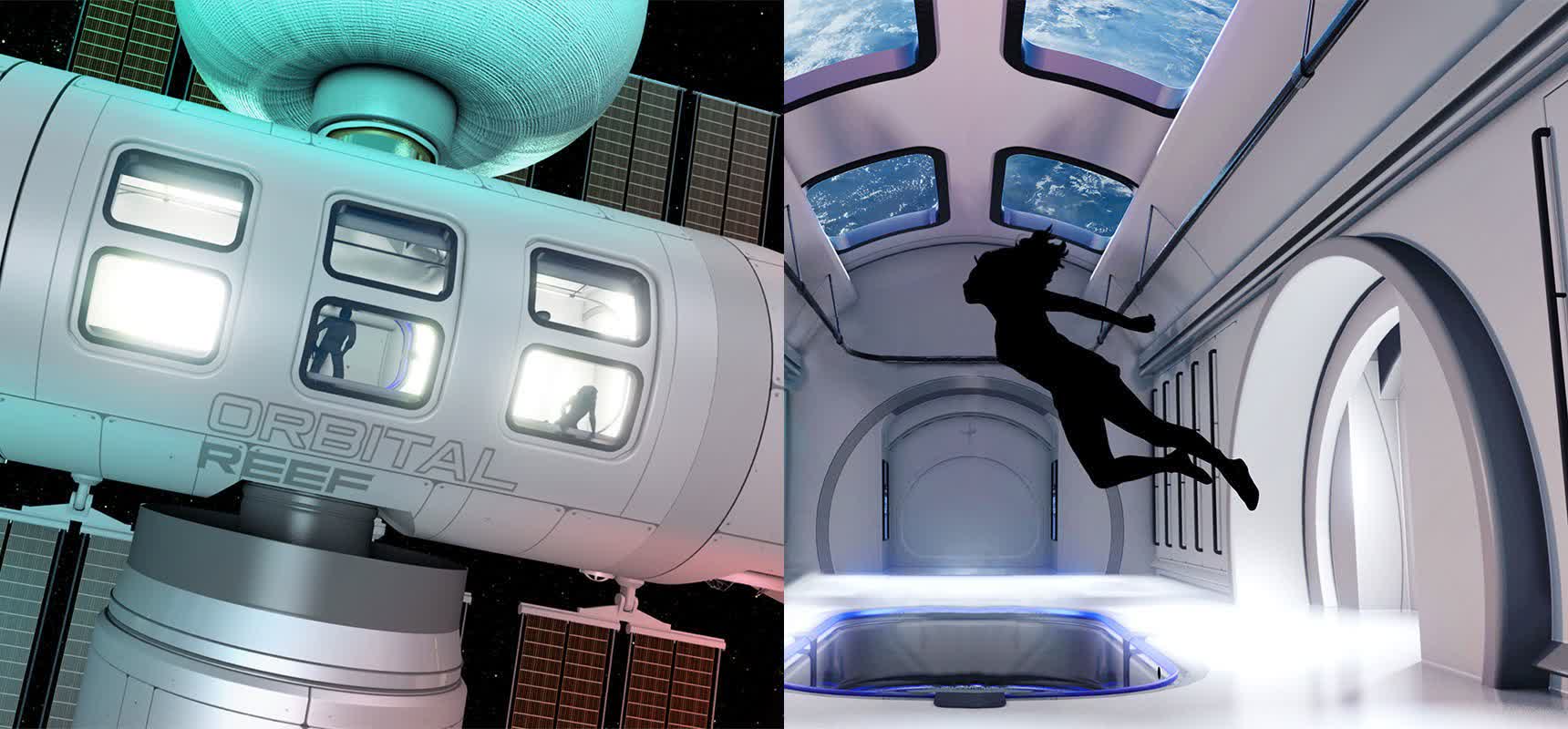Forward-looking: Jeff Bezos has already traveled to the edge of space in a Blue Origin rocket, but the billionaire has bigger plans. His company announced it will build a commercial space station called Orbital Reef, described as a "mixed-use business park" in space, set to launch in the second half of this decade.
The Orbital Reef project comes from a partnership between Blue Origin and Sierra Space. The former will supply the rockets needed to get the structure into space, while the latter will provide its Dream Chaser mini-shuttle spacecraft for crew and cargo transportation, as well as its LIFE inflatable habitats.
Boeing (science module and operations), Redwire Space (payload ops and deployable structures), Genesis Engineering Solutions (Single Person Spacecraft system), and Arizona State University (research advisory services and public outreach) are also partners, each providing their own elements and services to the station.
Orbital Reef will be habitable for up to ten people, so put aside any visions of Mass Effect's Citadel. Blue Origin says it's designed to have as much habitable volume as the International Space Station, which has 15,000 cubic feet. Bezos' company adds that module berths, vehicle ports, utilities, and amenities can all increase as the market grows.
Blue Origin expects Orbital Reef's customers will be "seasoned space agencies, high-tech consortia, sovereign nations without space programs, media and travel companies, funded entrepreneurs and sponsored inventors, and future-minded investors."
"Designed to open multiple new markets in space, Orbital Reef will provide anyone with the opportunity to establish their own address on orbit. This unique destination will offer research, industrial, international, and commercial customers the cost competitive end-to-end services they need including space transportation and logistics, space habitation, equipment accommodation, and operations including onboard crew," the press release states.
Blue Origin's prediction for when the station will be operational is somewhere between the very optimistic 2025 to the slightly less optimistic 2030.
Bezos was part of Blue Origin's first crewed spaceflight earlier this year, which lasted around 10 minutes from take-off to touchdown. He was allowed back on earth despite almost 200,000 people signing a petition demanding otherwise.
https://www.techspot.com/news/91933-jeff-bezos-blue-origin-announces-plans-build-operational.html
